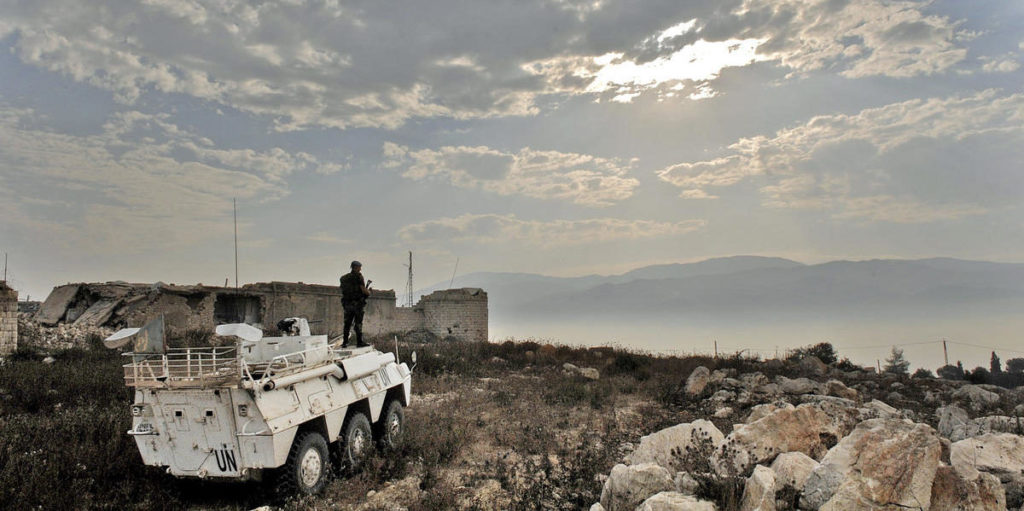
Italy’s participation to the stabilization mission in Libya, which was announced more than a year ago, is now imminent. On December 16, 2015, the country’s main political factions have signed an agreement to form a government of national unity, one of the preconditions for Italy’s participation. The intervention’s launch date is approaching and the next logical question is: how can the Italian government contribute to peace in Libya while simultaneously minimizing the risks linked to intervening in a fragile and conflict-affected country?
Our hypothesis is that the experience acquired in Lebanon, where Italy has been engaged since 2008, can represent an effective starting point. A reflection on the successes and challenges from that intervention can, in fact, offer different lessons learned for planning the mission in Libya. It would also represent a new and original endeavour for Italian agencies working on peace and security, as these types of exchanges are today almost completely lacking.
Starting from the Italian experience is Lebanon is relevant also on account of another factor: the consensus about the role that Italy has played in that country is, in fact, generally positive, yet no one has to date committed to exploring the causes that have led to this success. What has Italy then done that has been so positive?
Italy’s intervention in Lebanon was in response to the 2006 war between Israel and Hezbollah. Immediately after the signing of the ceasefire, the UN Security Council assigned, through Resolution 1701, the responsibility for monitoring the new accord to the UN Interim Force in Lebanon (UNIFIL), a mission that was already in the country, but whose role and size were expanded by the resolution. Since then, Italy has been playing a leading role in the mission, contributing the second largest number of soldiers (1.100) and being regularly responsible for its command.
Although UNFIL’s main task is to contribute to security, over the last few years its mandate has evolved to also include support to Lebanese armed forces as they deploy across Southern Lebanon, and humanitarian assistance. UNIFIL relies regularly on ‘quick impact projects’ in sectors that are all but military: constructing clinics, renovating public spaces, etc. As such, the role of Italian soldiers appears to be different from that of other actors. “It is widely recognized”, writes Marina Calculli, a researcher at George Washington University, “that Italian troops are involved, more than others, in a number of civilian activities that benefit local populations and are engaged in a political dialogue with the local leadership which is often pro-Hezbollah”.
Italy’s commitment to Lebanon also goes beyond UNIFIL. Among the main initiatives supported by the Italian government there is the Rehabilitation, Employment, Services and Development Programme (ROSS in Italian), through which the Ministry of Foreign Affairs and International Cooperation (MAECI in Italian) has financed projects benefitting 100 Lebanese municipalities. The Ministry has also supported 20 Italian NGOs, many of which are still working in the country, including in the humanitarian and health sectors; and established, in 2009, an Italian forum for civil-military exchange and coordination.
All these elements suggest that Italy’s intervention in Lebanon has been evolving from an approach of pure peacekeeping, where the focus is on the role of soldiers in promoting security, to one of peacebuilding, which aims at strengthening institutions and the links between the latter and citizens. This could be one of the reasons for the success of Italian efforts to date. Calculli offers two more: the recognition by Italian soldiers of Hebzollah’s legitimacy—a choice others have resisted—and the policy of ‘equivicinanza’ (equal proximity), which allowed Italy to retain the trust of all conflict parties.
These factors could be critical for ensuring that Italy’s contribution in Libya is similarly successful. Without greater efforts to critically reflect on the entirety of Italian experiences in Lebanon, however, these considerations remain superficial, incomplete and useless for the purposes of the policy and strategy decisions that Italy will soon face. It is also important to recognize that Libya is very different from Lebanon: the country is still in a state of civil war and features a strong terrorist threat. There are, however, also similarities, including a fragile institutional framework and the presence of armed militias.
AP’s proposal is therefore to launch a critical process that can identify which lessons learned from Lebanon can be useful for Libya also. Such a process needs to bring together representatives from all the different realities engaged in Lebanon: the Italian government and Italian NGOs, and also those Lebanese civil society representatives who have participated—as partners or beneficiaries—to these interventions. And it has to be based on an open exchange about not just what worked, but also what did not. This is the only way to guarantee that such an investment can lead to policy choices that are capable of contributing to building sustainable peace in Libya.































